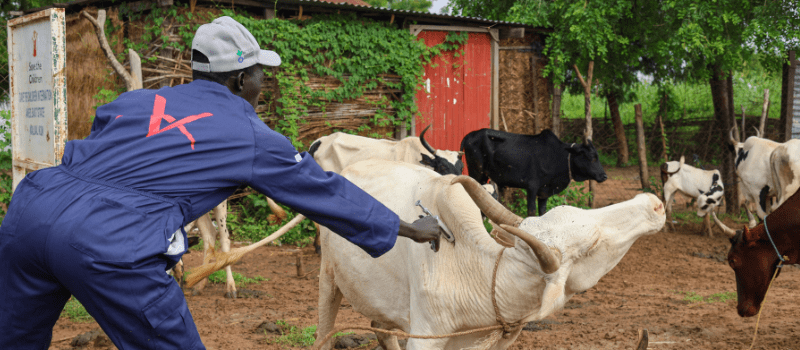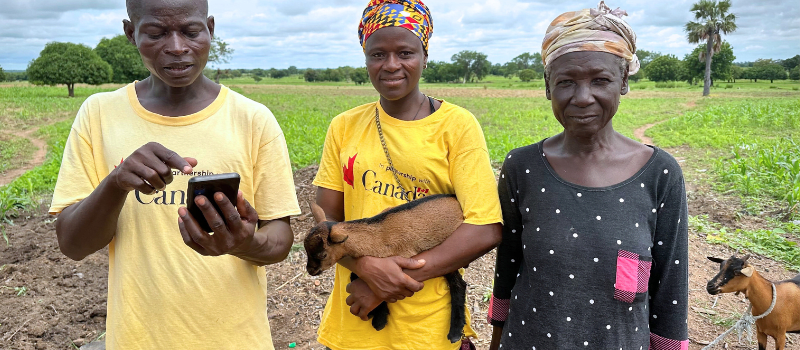From August 21 to September 5, over 57,000 animals were vaccinated in Northern Bahr el Ghazal, South Sudan, as part of an ongoing collaboration between VWB and Action Against Hunger USA. This life-saving campaign has brought renewed hope to communities dependent on livestock for their livelihoods. Special thanks to our South Sudan Country Director, John Gaaniko, whose insights helped to shape this article.
In South Sudan, livestock is the lifeline for thousands of smallholder farmers. Every cow, goat, or sheep lost to preventable diseases represents more than just an economic loss—it’s a threat to the survival of entire communities. In regions like Aweil East, where livestock sustains both income and nutrition, protecting animals from disease is essential for food security and household resilience.
Through the collaborative efforts of Veterinarians Without Borders (VWB) and Action Against Hunger (ACF-USA), this story of loss is transforming into one of hope and resilience. Over the course of just 14 days, VWB and its Community Animal Health Workers (CAHWs) vaccinated more than 57,000 animals, dramatically curbing the spread of contagious diseases like Contagious Bovine Pleuropneumonia (CBPP), Foot-and-Mouth Disease (FMD), and Peste de Petits Ruminants (PPR). These diseases, which can wipe out up to 80% of a herd, are now better managed in these hard-hit communities, thanks to targeted interventions and the commitment of local CAHWs trained by VWB.
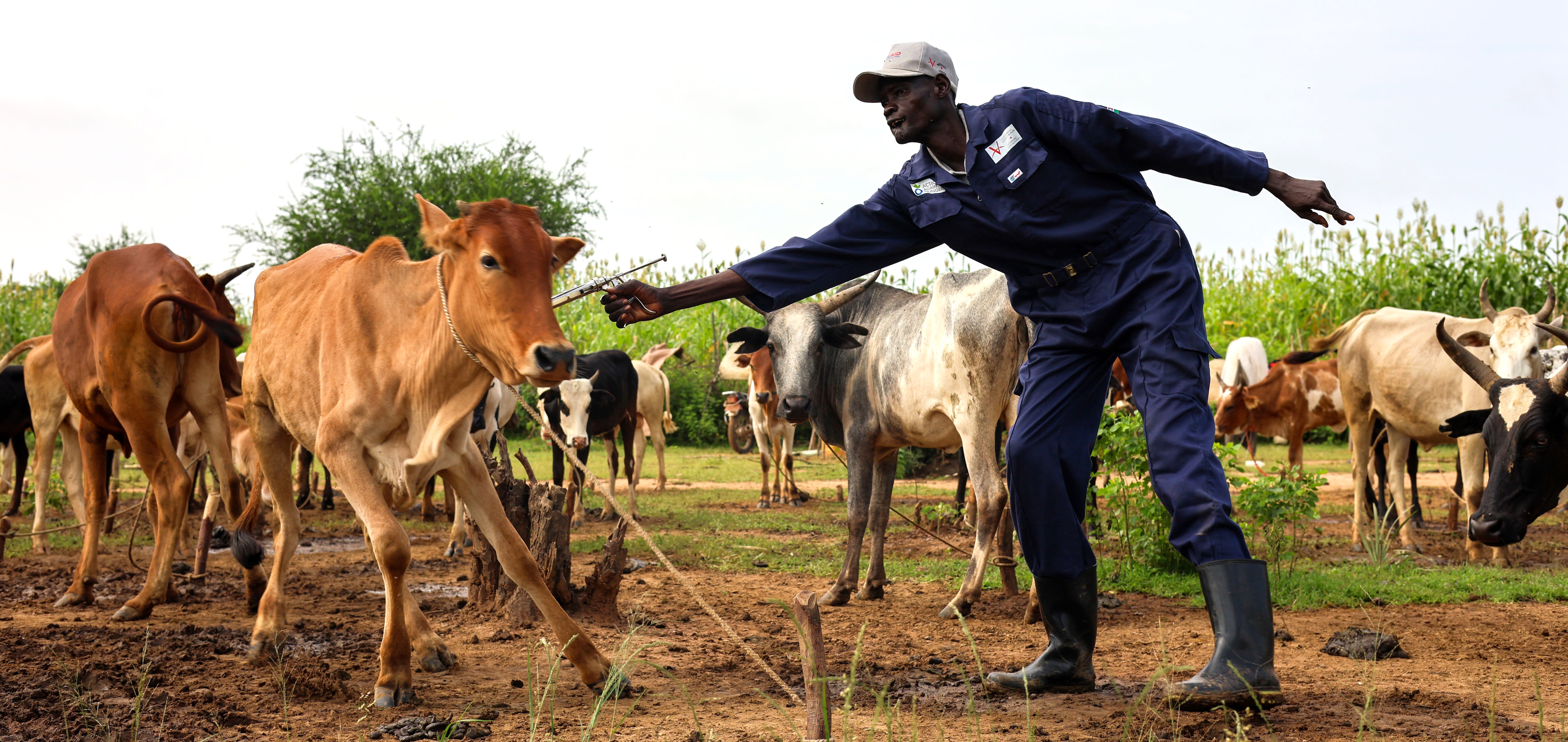
A Lifesaving Initiative
This vaccination campaign, which ran from August 21 to September 5, 2024, represents more than just a short-term solution. It's part of a comprehensive, long-term effort to strengthen South Sudan's One Health systems and bolster community resilience. Working alongside ACF-USA’s Integrated Emergency Response in South Sudan, VWB focused on enhancing both livestock health and the broader One Health framework that ties together the health of animals, people, and the environment.
"Before the vaccinations, we lost so many animals to diseases we didn’t understand," said Achan Malek, a farmer in Aweil East. "Now, our goats and cattle are healthy again. We are not just surviving—we are building a future."
For Achan and others like her, the health of their livestock is tied directly to the health of their families. More than 70% of the region depends on livestock for both income and nutrition. The vaccination program, supported by USAID's Bureau for Humanitarian Assistance (BHA) and facilitated by the Food and Agriculture Organization (FAO), has delivered life-saving animal health services where they are most needed, closing a dangerous gap in veterinary care.
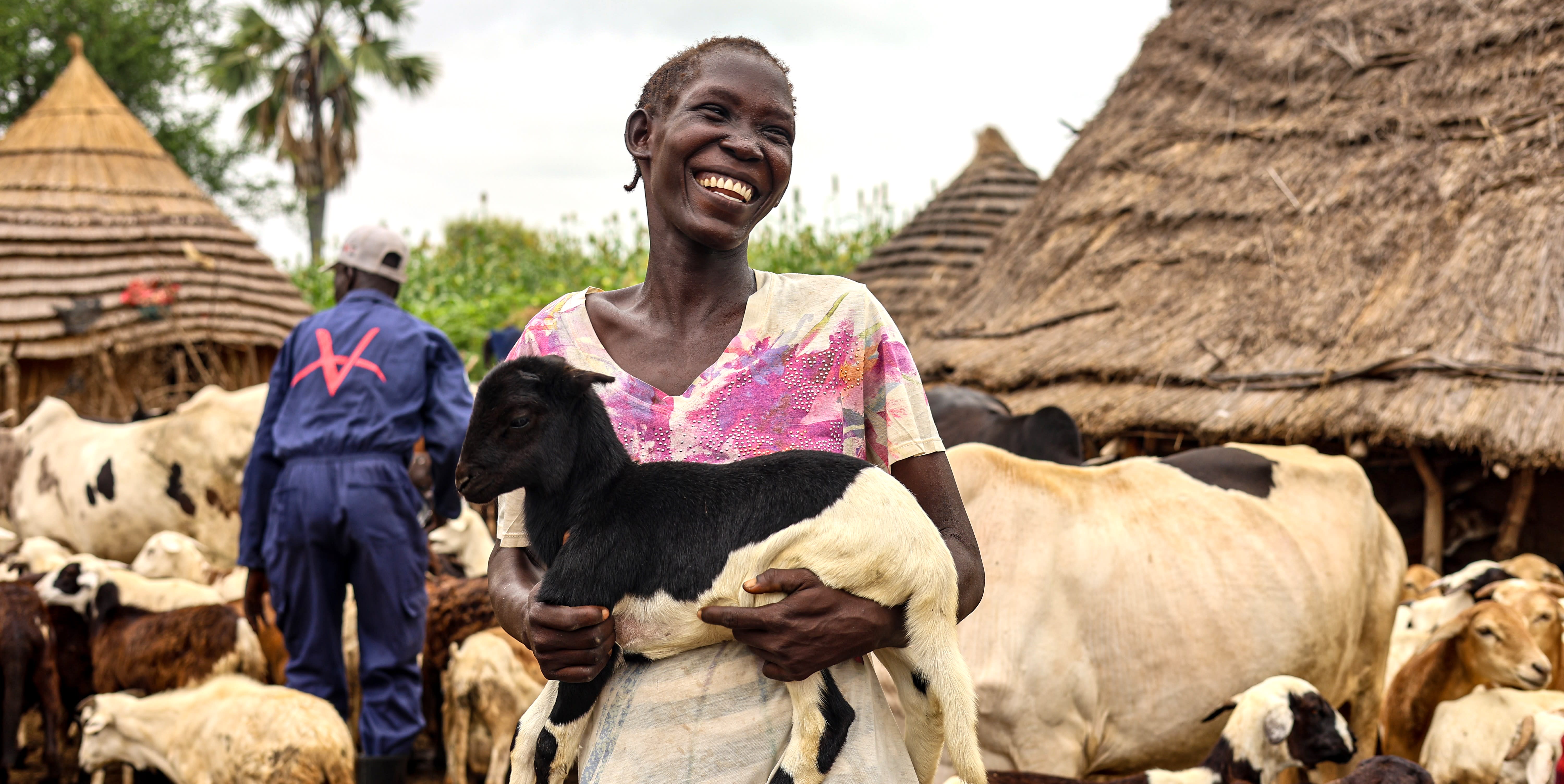
Impact by the Numbers
The numbers tell a powerful story:
- 57,073 livestock (cattle, sheep and goats) vaccinated in a two-week campaign.
- 200 trained CAHWs since the program's inception in 2021, providing ongoing veterinary services to remote communities.
- 106,486 livestock vaccinated across three states—Jonglei, Northern Bahr El Ghazal, and Warrap.
- 6,548 households, representing 39,288 individuals, have directly benefited from this intervention.
The program’s success isn't limited to livestock survival. Vaccination interventions like this can avert up to 95% of livestock deaths from preventable diseases and lead to a 10% increase in animal productivity. For farmers in Aweil East, this means more milk, meat, and marketable animals—a crucial boost in a region where food insecurity threatens lives daily.
Building Sustainable Animal Health Systems
At the heart of VWB’s approach is sustainability. By training and equipping local CAHWs with veterinary skills and starter kits, VWB ensures that these communities have ongoing access to animal healthcare. These CAHWs operate under a cost-recovery model aligned with Livestock Emergency Guidelines and Standards (LEGS) for South Sudan. This model not only ensures the sustainability of veterinary services but also creates new livelihoods for CAHWs, many of whom have established their own small businesses.
"Being able to care for animals in my community is a source of pride," said Kuol Deng, a CAHW in Aweil East, Northern Bahr el Ghazal. "Now, when someone’s goat falls ill, I have the skills to help, and that makes a big difference for families."
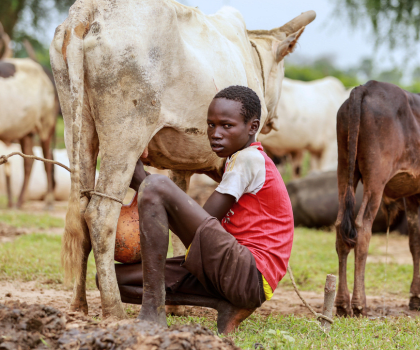

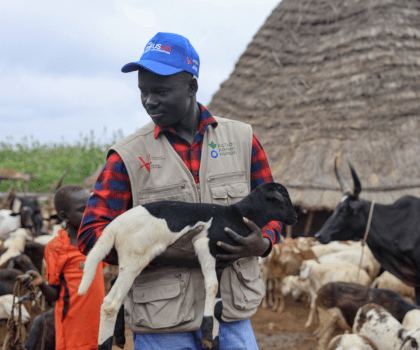
A Stronger, Healthier Future
Since 2021, VWB's partnership with ACF-USA has delivered vital, integrated emergency responses to some of South Sudan’s most vulnerable populations. These interventions are not just saving animals—they’re saving livelihoods and enhancing the long-term food security of entire communities. With healthier herds, families can not only meet their nutritional needs but also plan for a more resilient future.
As VWB continues its work in South Sudan, programs like this are laying the foundation for broader One Health interventions, bridging the gap between emergency response and sustainable development. For the communities of Aweil East, the campaign has already begun to turn the tide, empowering farmers to rebuild their livelihoods with renewed hope.
In a place where every life counts—animal or human—VWB and its partners are showing that focused efforts can create profound and lasting change.
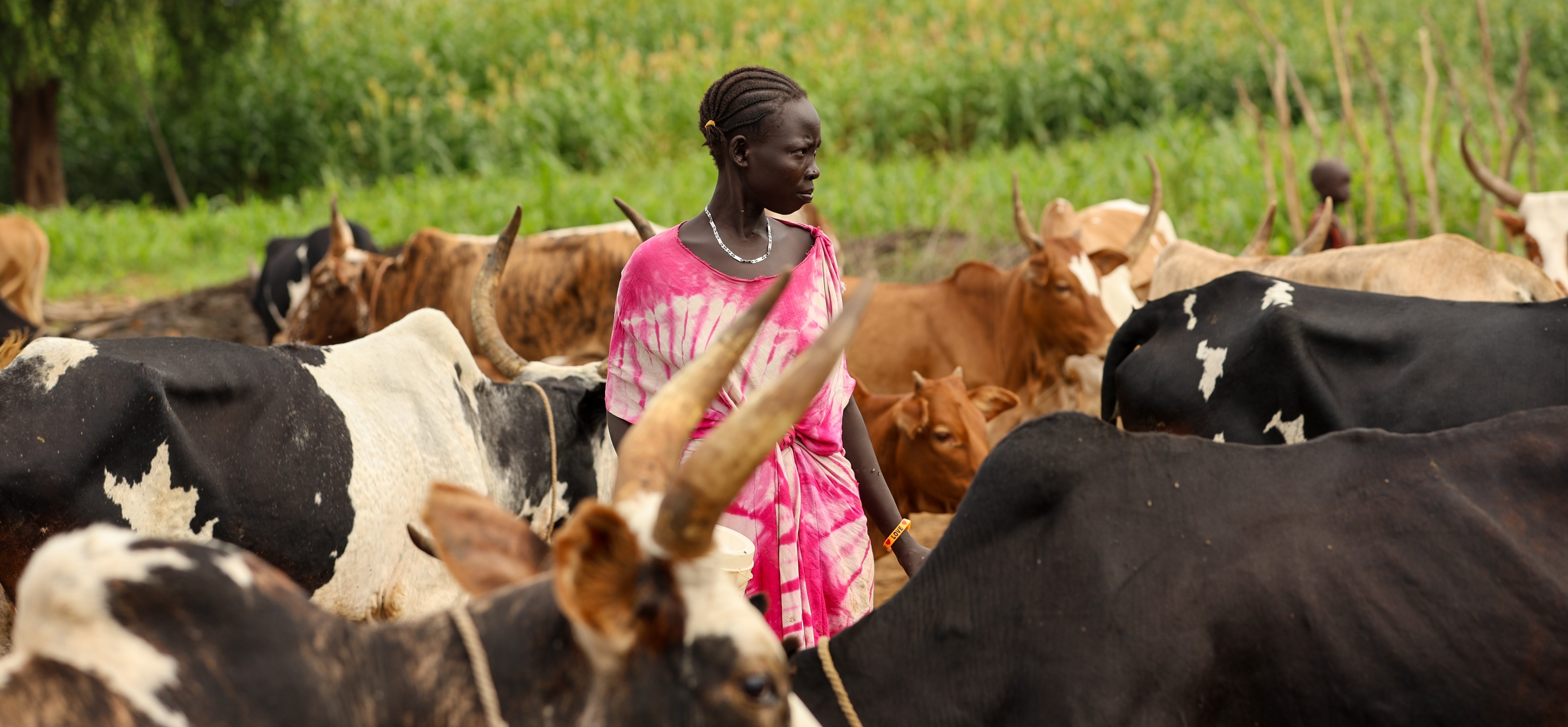
If you would like to help care for livestock and enhance the livelihoods of people across South Sudan, please consider donating, becoming a monthly donor, or supporting our Crisis Fund. Learn more. Thank you so much for your generosity and compassion.

